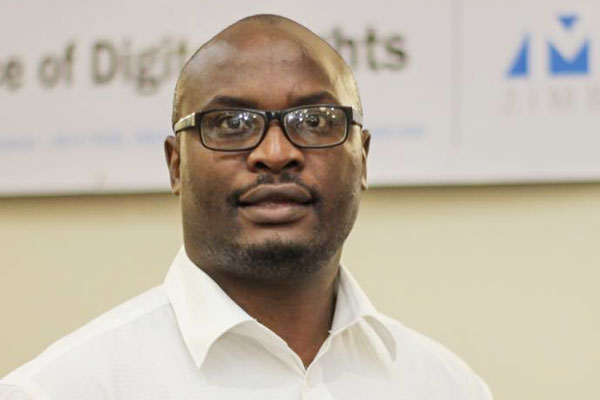
BY HARRIET CHIKANDIWA
The Media Institute of Southern Africa (Misa) Zimbabwe has urged the African Commission on Human Rights (ACHPR) to encourage the Sadc governments to take all measures necessary to guarantee the safety and security of journalists.
Misa Zimbabwe director Tabani Moyo made the call during the 68th ordinary session of the ACHPR on Friday.
Moyo said there was need to ensure that cyber security regulations are informed by the revised principles of the ACHPR Declaration on Freedom of Expression and Access to Information, which recognise the internet as a right.
He said the problems facing the media in the region had deepened.
This has been exacerbated by the outbreak of the Covid-19 pandemic, leading to governments and states using the cover of the pandemic to violate the people’s basic rights such as expression, privacy, media freedom and access to information.
He said in Zimbabwe, journalists still faced attacks from state security agents.
Zimbabwe is in the process of doing the same with the Cybersecurity and Data Protection Bill, which is before Parliament.
- Chamisa under fire over US$120K donation
- Mavhunga puts DeMbare into Chibuku quarterfinals
- Pension funds bet on Cabora Bassa oilfields
- Councils defy govt fire tender directive
Keep Reading
Both Acts fall far short of regional and international standards and instruments on human rights such as the African Union Convention on Cyber Security and Personal Data Protection (Malabo Convention, which sets the standards for cybersecurity and personal data protection laws as well as capacity building, knowledge exchanges and experience sharing among signatories).
Zimbabwe has also gazetted Statutory Instrument 95 of 2021, known as the Postal and Telecommunications (Telecommunications Traffic Monitoring System) Regulations of 2021.
“The statutory instrument is highly problematic in that the monitoring of traffic call records can easily lead to the disclosure of personal information and data, which leads to exposure of individuals, especially those in the opposition, civic space, the media and activists,” Moyo said.
“There is need for clearly defined safeguards when the government comes up with such instruments to ensure the right to privacy as provided for by the constitution under Section 61 is upheld at all material times.”
He added: “The situation in Mozambique continues to deteriorate at a very alarming rate. Just recently, the government took a number of journalists to Cabo Delgado in an effort to show that the situation was under control.”










